Divine Healing
He gave them power against unclean spirits, to cast them out and to heal all manner of sickness and all manner of weakness Matthew 10:1
Andrew Murray

Contents
Ch. 1:
Ch. 2:
Ch. 3:
Ch. 4:
Ch. 5:
Ch. 6:
Ch. 7:
Ch. 8:
Ch. 9:
Ch. 10:
Ch. 11:
Ch. 12:
Ch. 13:
Ch. 14:
Ch. 15:
Ch. 16:
Ch. 17:
Ch. 18:
Ch. 19:
Ch. 20:
Ch. 21:
Ch. 22:
Ch. 23:
Ch. 24:
Ch. 25:
Ch. 26:
Ch. 27:
Ch. 28:
Ch. 29:
Ch. 30:
Ch. 31:
Ch. 32:
Register This New Book
Benefits of Registering*
- FREE replacements of lost or damaged books
- FREE audiobook Pilgrims Progress, audiobook edition
- FREE information about new titles and other freebies
www.anekopress.com/new-book-registration
*See our website for requirements and limitations.
Preface
T his work may be considered a testimony of my faith in divine healing. After being unable to serve in my ministry for more than two years, I was healed by the mercy of God in answer to the prayer of those who see Him as the Lord thy Healer (Exodus 15:26).
This healing by faith has been the source of rich spiritual blessing to me. I have clearly seen that the church possesses in Jesus, our Divine Healer, a priceless treasure she does not yet know how to appreciate, convinced anew of what the Word of God teaches us in this matter, and of what the Lord expects of us. If Christians learned to realize the practical presence of the Lord thy Healer , I am convinced their spiritual life would be developed and sanctified as a result.
For these reasons, I can no longer keep silent. I publish this series of meditations with the view of showing, according to the Word of God, that the prayer of faith (James 5:15) is the means appointed by God for the cure of the sick. Also, how this truth is in perfect accord with Holy Scripture, and how the study of this truth is essential for everyone who wants to see the Lord manifest His power and His glory in the midst of His children.
Andrew Murray, 1828-1917
Chapter 1
Forgiveness and Healing
But that ye may know that the Son of man has power on earth to forgive sins (then said he to the paralyzed man), Arise, take up thy bed, and go unto thine house (Matthew 9:6).
I n man two natures are combined. He is at the same time spirit and matter, heaven and earth, soul and body. On one side he is the son of God, and on the other he is doomed to destruction because of the fall. Sin in his soul and sickness in his body bear witness to the right death has over him. It is this twofold nature that has been redeemed by divine grace. When the psalmist calls upon all that is within him to bless the Lord for His benefits he cries, Bless the Lord, O my soul,... Who forgives all thine iniquities; who heals all thy diseases (Psalm 103:1, 3). When Isaiah foretells the deliverance of his people he adds, The inhabitant shall not say, I am sick: the people that dwell therein shall be absolved from sin (Isaiah 33:24).
This prediction was accomplished beyond all anticipation when Jesus the Redeemer came down to earth. How numerous were the healings performed by Him who came to establish the kingdom of heaven on earth! Whether by His own acts or afterward by the commands He left for His disciples, He shows us clearly that the preaching of the gospel and the healing of the sick went together in the salvation He came to bring. Both are given as evident proof of His mission as the Messiah, The blind receive their sight, and the lame walk... and the poor have the gospel preached to them (Matthew 11:5). Jesus, who took upon Himself both the soul and body of man, delivers both in equal measure from the consequences of sin.
This truth is nowhere more evident or better demonstrated than in the account of the paralytic. The Lord Jesus said to him, Thy sins are forgiven thee Arise, and walk (Matthew 9:5). The pardon of sin and the healing of sickness complete each other because, in the eyes of God who sees our entire nature, sin and sickness are as closely united as the body and the soul. In accordance with the Scriptures, our Lord Jesus regarded sin and sickness in another light than we have. With us, sin belongs to the spiritual domain. We recognize that sin is under Gods righteous displeasure, rightly condemned by Him. While sickness seems only a part of the present condition of our nature with nothing to do with Gods condemnation and His righteousness. Some go so far as to say that sickness is a proof of the love and grace of God.
Neither the Scripture nor Jesus Christ Himself ever spoke of sickness in this light. Nor do they ever describe sickness as a blessing, a proof of Gods love, that should be borne with patience. The Lord spoke to the disciples of various sufferings they would have to bear, but when He speaks of sickness it is always as an evil caused by sin and Satan from which we should be delivered. He declared that every disciple of His would have to take up his cross (Matthew 16:24), but He never taught one sick person to resign himself to being sick. Jesus healed the sick, He dealt with healing as one of the graces belonging to the kingdom of heaven. Sin in the soul and sickness in the body both bear witness to the power of Satan, and the Son of God appeared, that He might undo the works of the devil (1 John 3:8).
Jesus came to deliver men from sin and sickness that He might make known the love of the Father. In His actions, in His teaching of the disciples, and the work of the apostles, pardon and healing are always found together. Either may appear more clearly and obviously, according to the development or the faith of those to whom they spoke. Sometimes it was healing that prepared the way for the acceptance of forgiveness. Other times forgiveness preceded the healing, which coming afterwards became a seal to it.
In the early part of His ministry Jesus cured many of the sick, finding them ready to believe in the possibility of their healing. In this way He sought to influence hearts to receive Himself as He who is able to pardon sin. When He saw the paralytic could receive pardon at once, He began by that which was of the greatest importance; after which came the healing that put a seal on the pardon that had been granted to him.
We see, by the accounts given in the gospels, that it was more difficult for the Jews at that time to believe in the pardon of their sins than in divine healing. Now it is just the opposite. The Christian church has heard so much preaching about the forgiveness of sins that the thirsty soul easily receives this message of grace. It is not the same with divine healing; this is rarely spoken of and believers who have experienced it are not many.
It is true that healing is rarely given today as it was in those times, to the multitudes whom Christ healed without any previous conversion. In order to receive healing, it is necessary to begin by confession of sin and a decision to live a holy life. This is without doubt the reason why people find more difficulty believing in healing than in forgiveness. This is also why those who receive healing receive at the same time new spiritual blessing, feel more closely united with the Lord Jesus, and learn to love and serve Him better. Unbelief may attempt to separate these two gifts, but they are always united in Christ. He is always the same Savior both of the soul and of the body, equally ready to grant pardon and healing. The redeemed may always cry, Bless the LORD, O my soul... Who forgives all thine iniquities; who heals all thy diseases (Psalm 103:1, 3).



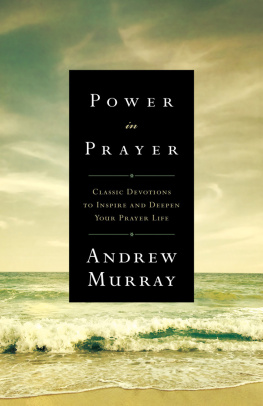
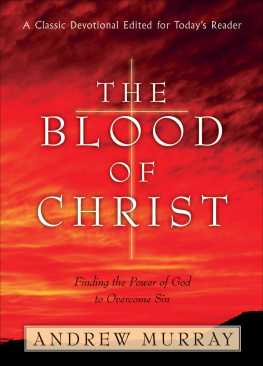

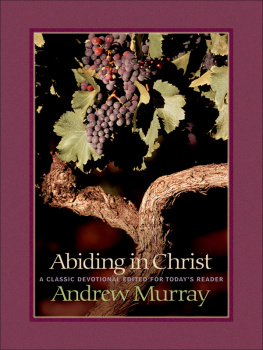




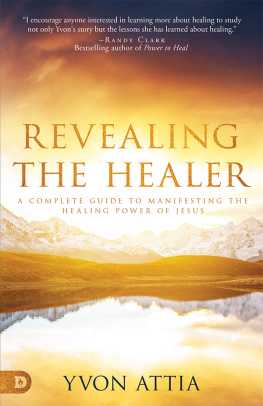


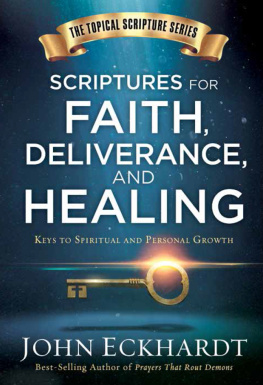
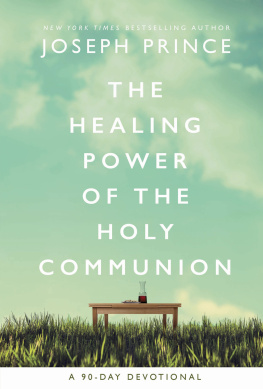

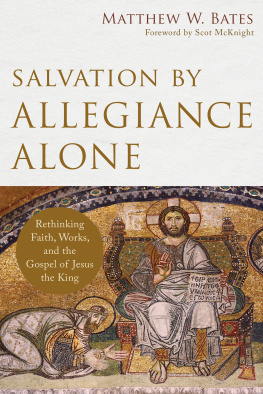
.jpg)
